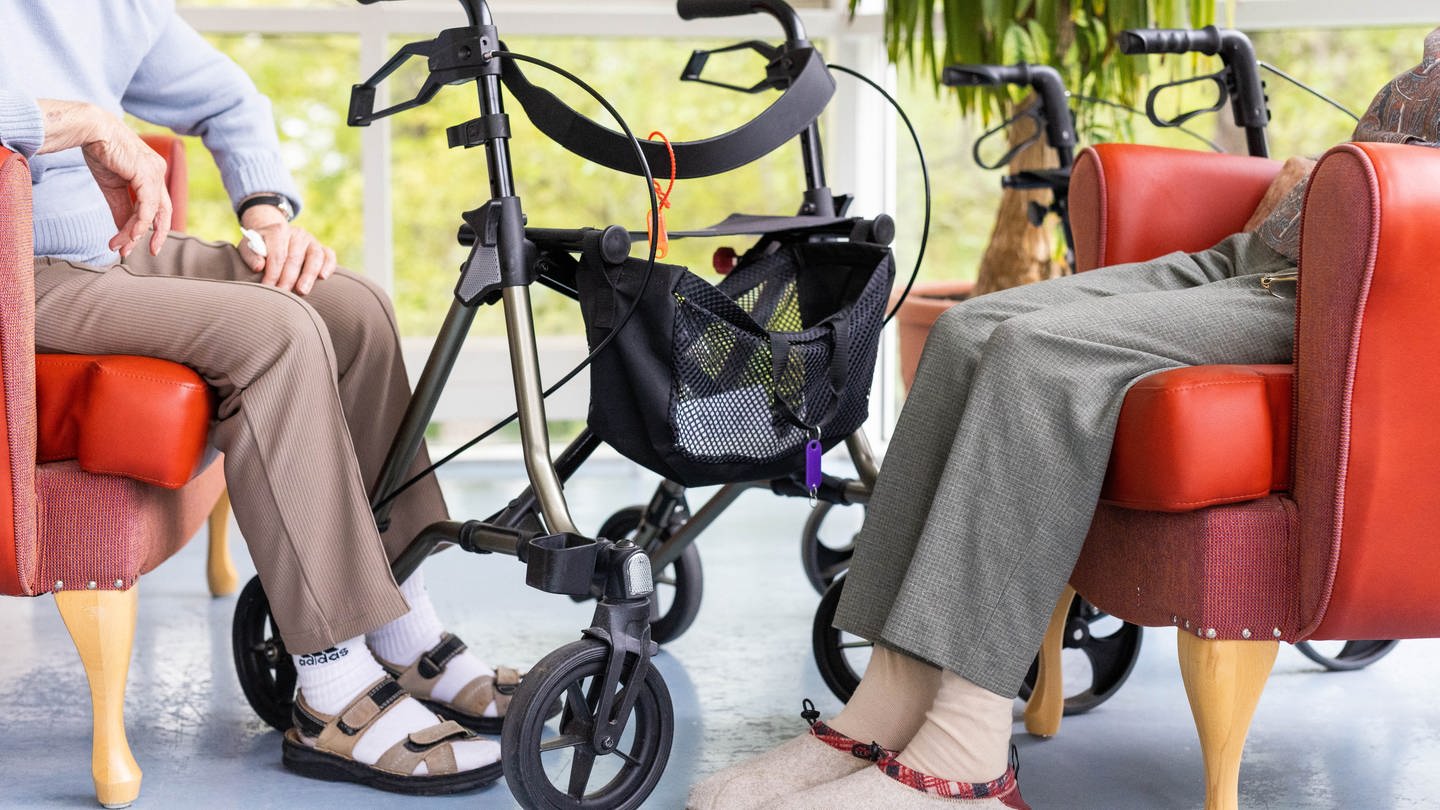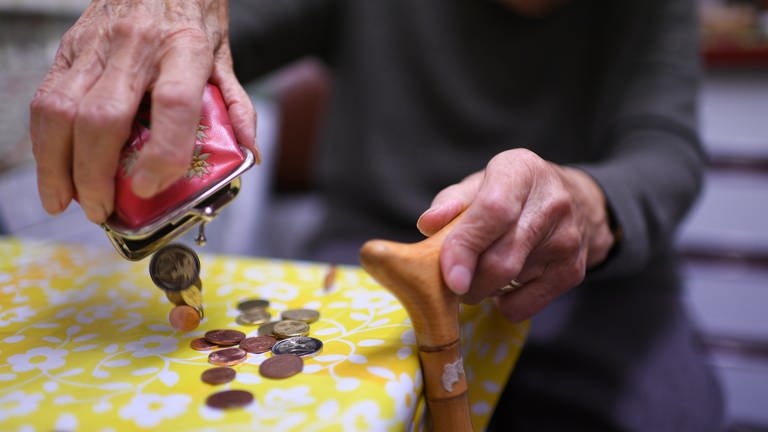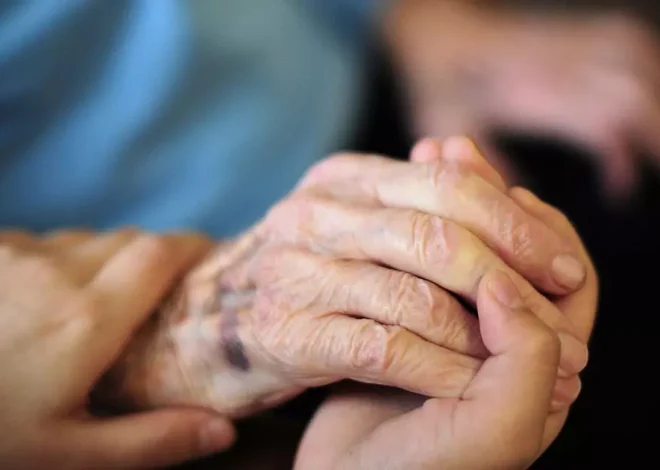
Care: Lauterbach warns of increasing numbers of people in need of care
At the beginning of the week, Federal Health Minister Lauterbach spoke of an explosive increase in the number of people in need of care. The trend is also increasing in Baden-Württemberg.
Federal Health Minister Karl Lauterbach (SPD) caused shock with his announcement at the beginning of the week. The number of people in need of care has risen much more than expected. Last year, around 35,000 more people were in need of care than usual in previous years. This was the result of calculations by the National Association of Health Insurance Funds (GKV). The reason: the baby boomers, the children of the particularly high birth rate generation from the mid-1950s to the end of the 1960s, are now gradually becoming in need of care as well.
Can these figures also be applied to Baden-Württemberg? And what does it mean for those affected when more and more people in need of care are competing with each other for places and money?
“Care makes you poor”: When both partners need help
Elisabeth Knörle and her husband are in need of care. Both use a wheelchair and are not mobile. He is in care level 5 and can no longer do anything on his own. She looks after him – but after numerous falls and osteoporosis, she can hardly do anything anymore either. She is now in care level 3. A nursing service provides outpatient care for both of them. Nevertheless, everyday life is a daily struggle for the 88-year-old and her husband from Brackenheim in the Heilbronn district.
“At first I did everything for him. I washed him, dressed him and even fed him in bed for six weeks. But at some point my bones couldn’t take it anymore,” says Elisabeth Knörle. The situation is extremely difficult for her. She needs an extremely long time for every movement. “My strength is very strained,” she says.
Care makes you poor.
The Knörles also have to pay a high amount of their own money for their care. They are also aware of the competition for care products and higher levels of care.
“Care makes you poor,” says Elisabeth Knörle. She and her husband have also had to learn this painfully. And this despite the fact that they only buy food and medicine and pay their running costs. Due to her illness, the 88-year-old has lost 10 kilos and actually needs new clothes. But that is not financially possible.
Increasing need for care: Federal Health Minister sounds the alarm
At the beginning of the week, the National Association of Health Insurance Funds (GKV) published figures on the increase in the number of people in need of care in Germany over the past year. Federal Health Minister Lauterbach was alarmed. He believes that the baby boomers are the reason for the trend. The first of them are dependent on care at the same time as their parents.
A comprehensive financial reform of the nursing care insurance will probably not be possible in the legislative period of the traffic light coalition until September 2025, it was said. Despite the resulting problems

SWR Aktuell – the morning in Baden-Württemberg
Subscribe now: Newsletter with BW news in the morning!
Do you want to be up to date in the morning? Then subscribe to “SWR Aktuell – the morning in BW”. The news from your state conveniently in your email inbox.
Care: Figures for BW not expected until the end of the year
Official figures from the Federal Statistical Office cannot yet confirm the nationwide explosive increase in the number of people in need of care because they are not yet available. They are made up of the figures from the federal states. In Baden-Württemberg, these figures for 2023 are not expected to be available until December, according to the State Statistical Office. The last survey at the state level showed that there were a good 540,400 people in need of care in Baden-Württemberg at the end of 2021. Most of them (448,642) received outpatient care.
The trend is also rising here – for demographic reasons. However, it is still unclear whether the increase in Baden-Württemberg for 2023 was as sharp as the national association of health insurance companies predicted. So far there are only forecasts, but these also predict a sharp increase.
Social association sees signs of nursing collapse
According to the State Statistical Office, the number of people in need of care could rise by 48 percent by 2060. There would then be almost 801,000 people in need of care. Stefan Pfeil, deputy managing director of the social association Vdk, sees this as a sign of an impending collapse in the care sector: “There is of course a danger that care will come under such pressure that it will probably no longer be possible to provide it.”
The situation is already partly precarious. “We have few outpatient services that can provide support at home, we have few short-term care places, and there are also problems with inpatient care because we cannot get the nursing staff.” All of this will lead to major challenges in the future.
Social association VdK: great danger of increasing poverty in old age
One in four people in need of care already receives social assistance. This is also due to the high personal contribution that has to be paid in Baden-Württemberg. In the first year, the average monthly contribution is 2,900 euros. The social association VdK is therefore calling for the state to invest more tax money in care. For example, by subsidizing investment costs, as was the case before 2010. Without more help from the state, many people in need of care will sooner or later end up in poverty in old age.
The average pension for men is 1,427 euros, for women it is 859 euros per month, says VdK managing director Pfeil. “If you then look at the personal contributions and they are over 2,900 euros, then it is a fact that those who need care in old age are dependent on social assistance.”

A victim from Stuttgart tells
Taboo subject of old age poverty: It mostly affects women
Although she has worked for many years, a 67-year-old woman from Stuttgart is affected by poverty in old age. Her monthly pension is barely enough to live on. One example among many others.
BW Social Minister for reform of the care system
State Social Minister Manfred Lucha (Greens) wants to campaign for a care reform at the federal level. He believes that social security should be financed from tax revenue. There are currently no plans to cover the investment costs. Instead, he has been campaigning for a so-called base-top swap in the financing of care services for years, so that the additional expenditure is no longer automatically borne by those in need of care and their relatives.
For Elisabeth Knörle and her husband, care reform needs to come as soon as possible to improve their situation. “It’s a battle – I’ve been fighting it for years to get reimbursements increased. If you need more treatment, you can’t finance it,” she says.

The most important news directly on your mobile
SWR Aktuell Baden-Württemberg is now also on WhatsApp
The SWR Aktuell WhatsApp channel offers the most important news from Baden-Württemberg, compact and varied. This is how it works – and this is how you can subscribe to it.

Ethel Purdy – Medical Blogger & Pharmacist
Bridging the world of wellness and science, Ethel Purdy is a professional voice in healthcare with a passion for sharing knowledge. At 36, she stands at the confluence of medical expertise and the written word, holding a pharmacy degree acquired under the rigorous education systems of Germany and Estonia.
Her pursuit of medicine was fueled by a desire to understand the intricacies of human health and to contribute to the community’s understanding of it. Transitioning seamlessly into the realm of blogging, Ethel has found a platform to demystify complex medical concepts for the everyday reader.
Ethel’s commitment to the world of medicine extends beyond her professional life into a personal commitment to health and wellness. Her hobbies reflect this dedication, often involving research on the latest medical advances, participating in wellness communities, and exploring the vast and varied dimensions of health.
Join Ethel as she distills her pharmaceutical knowledge into accessible wisdom, fostering an environment where science meets lifestyle and everyone is invited to learn. Whether you’re looking for insights into the latest health trends or trustworthy medical advice, Ethel’s blog is your gateway to the nexus of healthcare and daily living.



